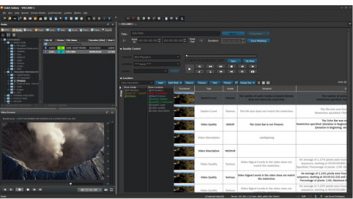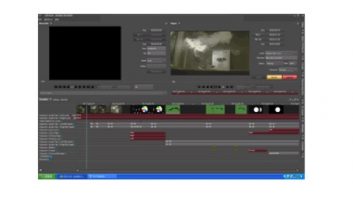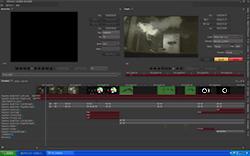
Reflecting the surge of interest in multi-platform content delivery and the consequent need for multi-format transcoding, AmberFin has introduced new functionality for its iCR content processing platform. The company claims that the enterprise-class features will enable the creation of transcode farms scalable to many nodes while retaining fault-tolerant operation.
The new iCR Transcode Farm Controller provides a single, reliable, redundant interface. Jobs managed by the controller continually manage the system architecture to achieve the levels of redundancy and throughput required by each individual application. This is designed to combine high throughput with advanced system functionality.
The package of new features also includes a network license server which allows the farm to be dynamically scaled. Pools of transcode nodes can float across the underlying server hardware. As well as providing capacity, it also increases resilience, by swapping operations to a back-up node if there is a problem with the hardware originally allocated to a task.
The result is that the same technology that can run on a single standalone PC can now run in a network of 100 or more servers, blades or virtual machines. The entire suite of iCR functionality is loaded onto the network just once and then the controller software takes over, managing licenses dynamically so that at run-time any given node will behave as required.
It also simplifies update control, as only the central license server needs to be touched. The upgrades will be distributed as required and as network traffic permits.
“The iCR platform makes intelligent use of a media facility’s resources while making complicated workflows simple to operate for the end user,” said Bruce Devlin, AmberFin CTO. “Media facilities need efficient and resilient multi-format transcode resources. With our solution, those transcode farms need not be massive or expensive.”







